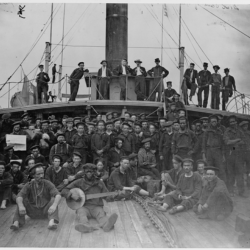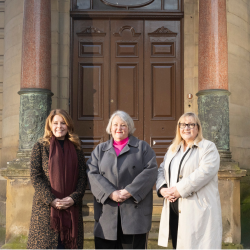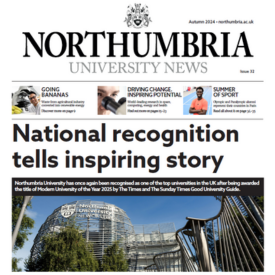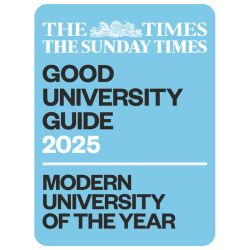Postgraduate research is a central and exciting part of History's research culture. Comprised of our MRes, MA, MPhil and PhD students, the postgraduate student community forms an important and lively part of that culture. The recent appointment of new research-active staff, as well as the introduction of the MRes in 2009, have contributed to the significant expansion in PGR numbers: History's PGR community is thriving. We offer a stimulating environment for discussions of research, for instance at History's regular Staff-Postgraduate research seminars. Students participate in the full range of on-campus research and are seen as valued members of History and the Department of Humanities.
Our History PhD and MRes students are studying a diverse range of topics. Further details of our PhD students, including details of their research and contact information, can be found below.
If you are interested in commencing postgraduate study, please contact Professor Neil Murphy, who will advise you which colleague is closest to your own interests.
Current History PhD Students:
Rory Allen
Ulster Protestant 'Variousness' As Explored Through Contemporary Fiction Writers, 1998-present
Having completed a BA and MA with Northumbria, my PhD looks at Northern Irish writers from Protestant backgrounds. It seeks to demonstrate that these writers are part of an overlooked cultural tradition of 'variousness', based on notions of plurality, ideological and political diveristy, and the rejection of traditional identity binaries. In doing so, it challenges widespread stereotypes of Ulster Protestants as uncultured, uniform, and reactionary.
Principal supervisor: Dr Connal Parr
Email: rory.allen@northumbria.ac.uk
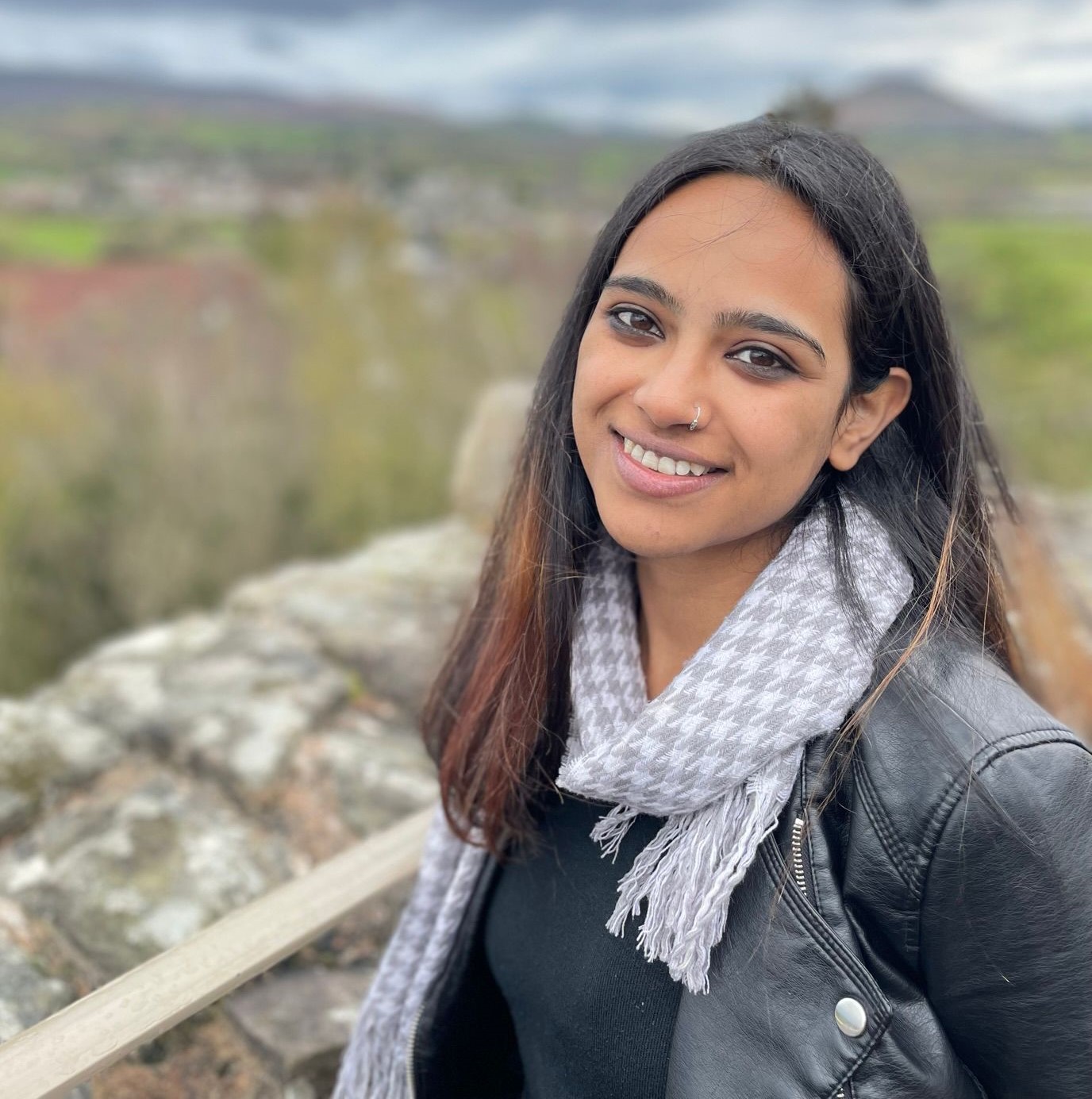 Malya Bhattacharya
Malya Bhattacharya
Women in the 1930s revolutionary movement in Bengal: Memory, memorabilia and the postcolonial nation state
Bio: My PhD is on the history, memory, and memorabilia of revolutionary Bengali women of the 1930s whose politics was anti-imperialist, anti-capitalist and anti-colonialist. I explore their personal recollections of the revolution and the complex way the postcolonial nation remembers them, challenging the ideal of a non-violent struggle for independence. My research explores political violence, ideas of armed uprisings, and uncovers biases in postcolonial historiography, monuments, and memorabilia, particularly regarding armed women. With a background in English literature and a history of social activism in Kolkata, my research interests extend to communist networks, radical women's history, memory and autobiography studies.
Principal supervisor: Dr Edward Anderson
Email: malya.bhattacharya@northumbria.ac.uk
 Adam Curry
Adam Curry
Men Say That He Shall Come Again’: King Arthur in Tudor England
I completed my BA (Hons) and MRes in History at 51▒¼┴Ž. My current research will show how the religious and political vicissitudes of the long sixteenth century produced new and important understandings of King Arthur, which impacted on key developments then transforming English society, including: the impact of the Reformation, the expansion of royal power, and the re-emergence of empire.
Principal supervisor: Prof. Neil Murphy
Email: adam.d.curry@northumbria.ac.uk
Twitter: @adamc80
LinkedIn:
 Paul Davy
Paul Davy
Urban Violence in the 1920s: A Comparison of Newcastle upon Tyne, Bremen and Seville
I completed a BA and an MA in History at King’s College London in the 1990s, focusing on medieval history. I hoped to study for a PhD, but life and a career in the Civil Service intervened, and this did not happen, until now! I became more interested in modern history and to return to academia I studied for an MA in European History at Newcastle University, graduating in March 2021. My MA dissertation was on political violence in the Second Spanish Republic and my PhD is a comparative study of violence in Newcastle, Bremen and Seville during the 1920s.
I’m studying part-time, working part-time in the Civil Service and in my (limited) free time I’m a keen runner and I enjoy travelling.
Principal supervisor: Dr Daniel Laqua
Email: paul.davy@northumbria.ac.uk
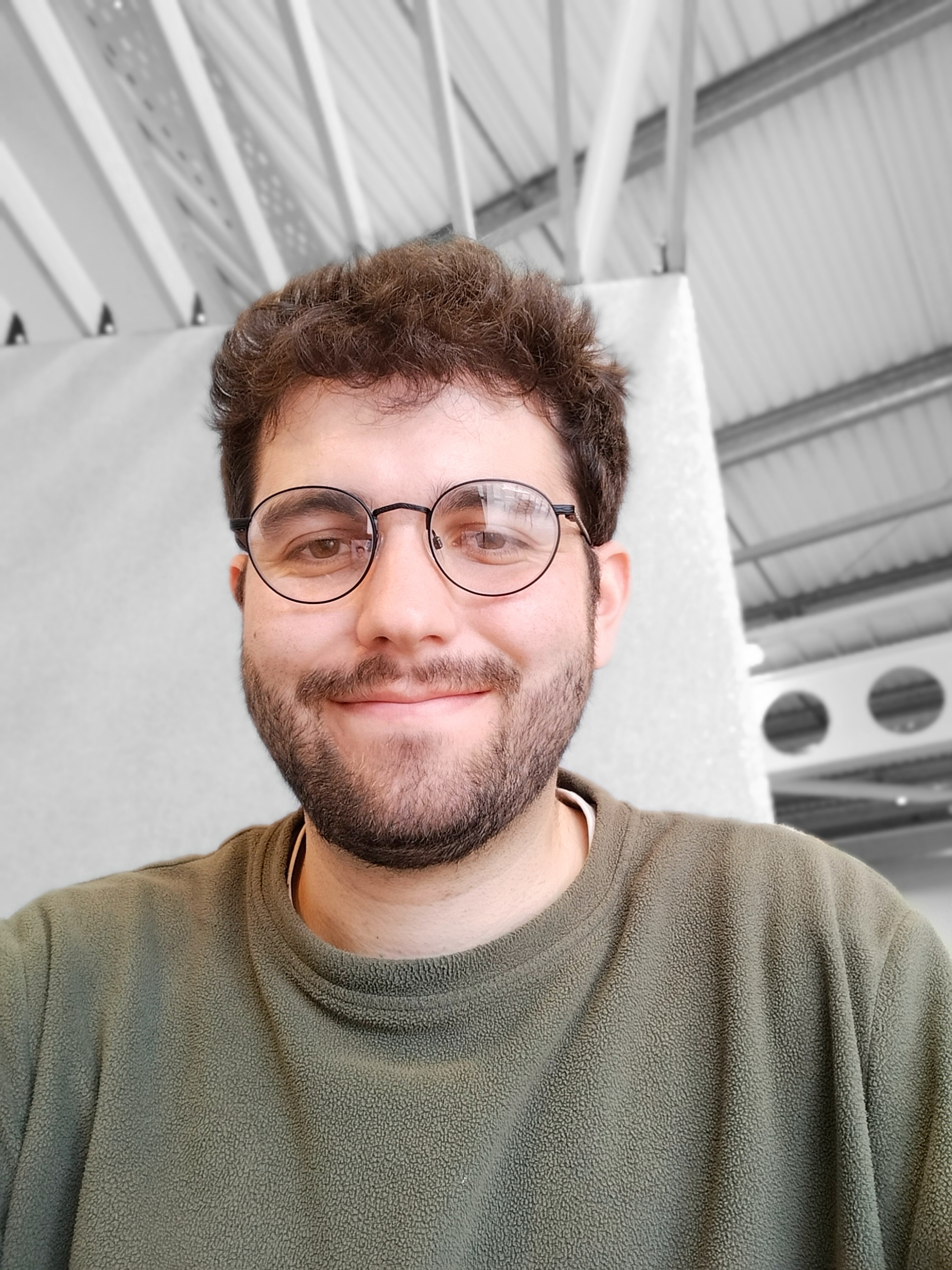 Adam Dixon
Adam Dixon
The Impact of Transport on Twentieth Century Tyneside
Bio: Working as part of the Leverhulme funded, interdisciplinary project Life Stories of Infrastructure, I am studying the social and environmental impact of transport on Tyneside during the twentieth century with a particular focus on the River Tyne and its crossings, the Tyne and Wear Metro, and the A1 Western Bypass and their antecedents. This research aims to provide a longitudinal study of infrastructure using archival and oral history methods seeks to understand how attitudes towards mobility, class/labour, regional identity, urban forms, materiality, and pollution have shaped and been shaped by infrastructure. I have an academic and practice background in architecture (BArch) and gallery curating (MA).
Principal supervisor: Dr Leona Skelton
Email: adam6.dixon@northumbria.ac.uk
 Adam Drake
Adam Drake
War, State and Society: Edward I and the Anglo-French War, 1294-98
In 2016 I was awarded a BA First Class with honours in History and the Medieval World at the University of Winchester, before achieving an MA in History the following year. During the MA I completed some select research work for the Tudor Chamber Books Project; the project, 'Kingship, Court and Society', was a collaboration between the University of Winchester and The National Archives. In 2018 I began my postgraduate research degree at 51▒¼┴Ž. My areas of expertise and research include: the three Edwards; Anglo-French/Castilian/Scottish political relations; late medieval military composition, strategy, and tactics.
Email: adam.drake@northumbria.ac.uk
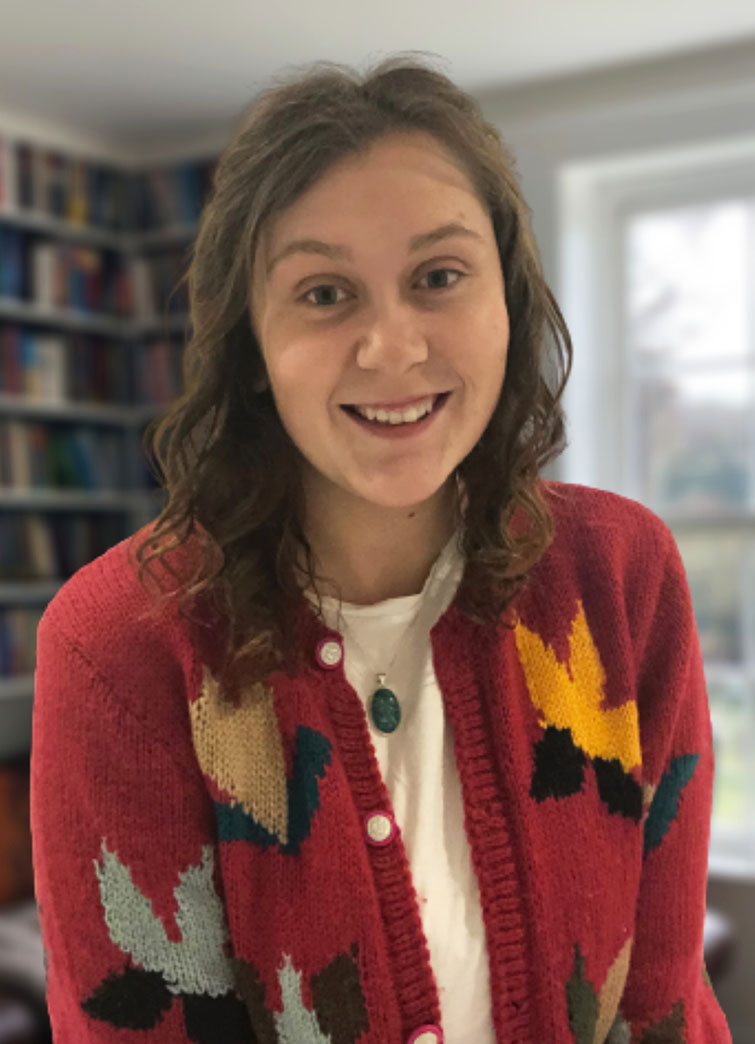 Harriet Galler
Harriet Galler
Perceptions of Khmer Rouge Atrocities in Western Public History from 1975 – Present Day
I completed a BA (Hons) in English and History from the University of Southampton and a MA in Holocaust and Genocide Studies from the University of Amsterdam before joining Northumbria to work on my PhD. My master's thesis focused on transitional justice measures after the Cambodian Genocide and how perpetrators managed to evade justice for over 35 years. I hope to continue with these themes in my PhD which I began in January 2021 under the supervision of Dr Waitman Beorn. More broadly my research interests include transnational contexts of memory, comparative genocide, transitional justice, Holocaust testimony and the future of Holocaust and genocide remembrance.
Email: harriet.galler@northumbria.ac.uk
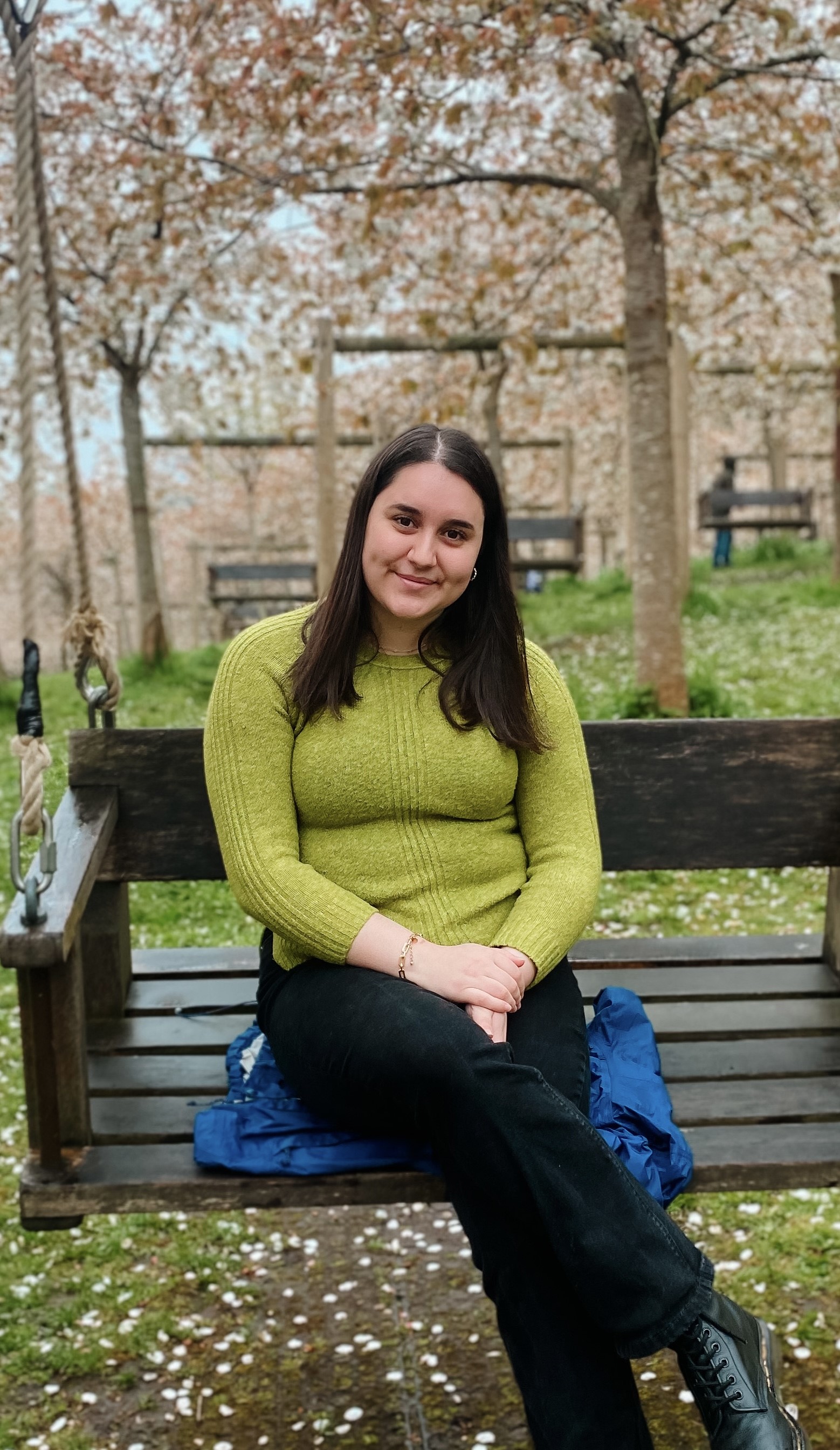 Abby Hammond
Abby Hammond
The Women in the Ledger Stones (c. 1630-1815): New Histories at Newcastle Cathedral
My project is a Northern Bridge funded CDA with Newcastle Cathedral, investigating the lives of the women named in their ledger stones. This particularly revolves around their public lives, researching their role in business and charity, as well as their private lives, as mothers, widows, and wives. More broadly, I am interested in gender, class, and death in the eighteenth century. I have previously studied at Newcastle University, where I completed both my BA (History) and MA (Heritage Studies).
Principal supervisor: Dr Jennifer Aston
Email: abby.hammond@northumbria.ac.uk
Twitter/X:
LinkedIn:
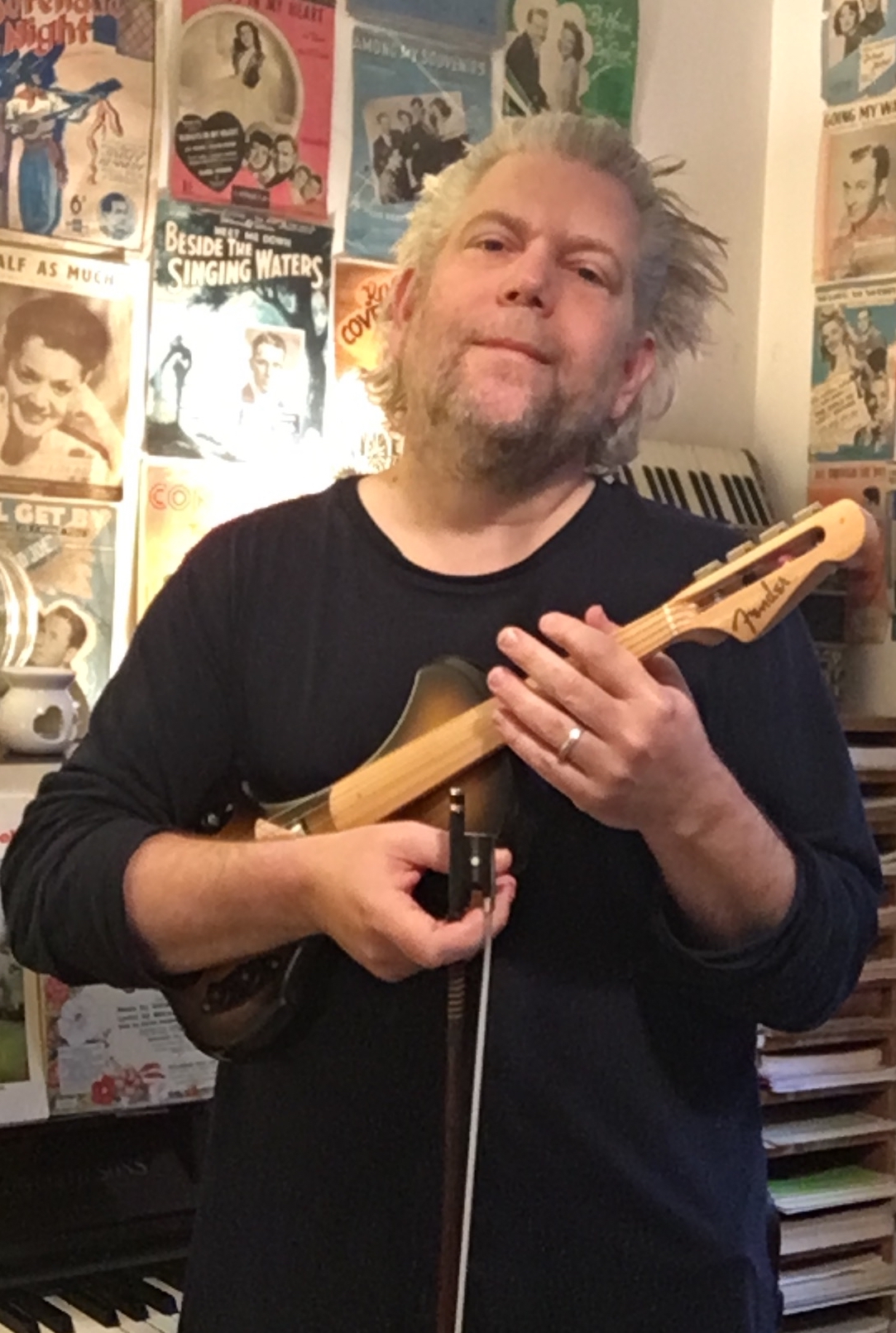 Benedict Heaney
Benedict Heaney
Exploring the History of the Bowed Electric String in the Modern Development of the Violin: From Leo Fender’s Electric Violin to digital techniques of the 21st century.
I've pursued music since childhood finding fascination in the electric violin from my early teens. After graduating from the RNCM in 1993, I set out to learn about all aspects of what seemed a brand-new profession. In early 2000 I began self-publishing my findings via my own authored website, attracting interest from players and makers around the world. During the past 30 years the profession has been blossoming, but still little is known about the roots. The aim of my project is to shed light on the still largely unexplored early history of the bowed electric string.
Principal supervisor: Dr Rachael Durkin
Email: benedict.heaney@northumbria.ac.uk
Website:
 Louis Lorenzo Holland Bonnett
Louis Lorenzo Holland Bonnett
The Natural Habitat of Youth? The Relationship between Childhoods and the Environment in North-East England, 1985-2010
In the context of contemporary fears over the denaturalisation of the child, my research analyses the evolving relationship between children and the environment in the North East. It focusses on childhood experience and agency and interrogates changing public policy, local initiatives, and contemporary debates on childhood, play, and the natural environment, whilst advancing an innovative methodology that combines oral testimony with walking interviews and mental maps in three distinct North East working class communities.
Principal supervisor: Prof. Matt Kelly
Email: louis.bonnett@northumbria.ac.uk
LinkedIn: www.linkedin.com/in/louis-holland-bonnett
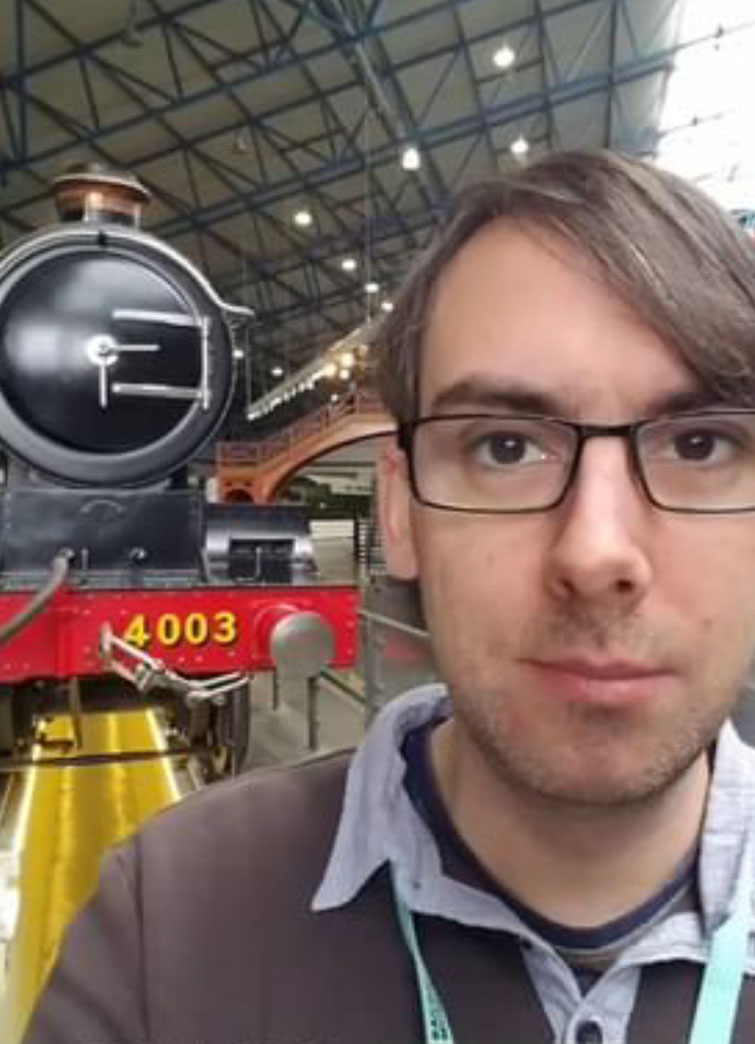 Ciaran Johnson
Ciaran Johnson
The Railways and the Making of Upland Britain: The Lifecycle of an Envirotechnical Regime
I completed my History BA and MA at Oxford Brookes, while my current PhD is in collaboration with the National Railway Museum. My research focusses around the Princetown Railway on Dartmoor, the associated granite industry, and surrounding communities. Covering 1800 to the present day, it explores how developments on the moor were shaped by social, economic and political events, and looks at the wider influence of the moor itself. My research interests cover industrial, transport and social history from 1800-1970, while my professional background is with a living museum, where I have been involved in event planning, research and restoration.
Email: ciaran.johnson@northumbria.ac.uk
 Sebastian Bank Jørgensen
Sebastian Bank Jørgensen
Melodia and Repercussio in Sixteenth-Century Printed Music Theory Books
I completed my BA and MA in Musicology at the University of Copenhagen, finishing with a dissertation on traditions of modal theory from the Middle Ages to the Renaissance. My current PhD project focuses on German modal theory in the sixteenth century, specifically investigating the terms melodia and repercussio and the cultural, historical, and paratextual contexts surrounding their origins and dissemination. My research interests mostly lie within medieval and Early Modern history and music theory, but my wider interests include the early history of hip-hop and genres of extreme metal.
Principal supervisor: Dr Katherine Butler
Email: sebastian.jorgensen@northumbria.ac.uk
Lewis Kimberley
Rumour and Racial Violence in the United States, 1873 to 1908
I completed both my BA and MA in History at Northumbria, and I’m now undertaking a PhD with AHRC funding. My research examines the role played by rumours in large-scale incidents of racial violence in the late nineteenth and early twentieth century United States. More broadly, my research interests include racial violence and race relations, as well as lived experiences and understandings in post-Civil War America, particularly during the Reconstruction period.
Principal supervisor: Prof. David Gleeson
Email: lewis.kimberley@northumbria.ac.uk
 Helen Leighton-Rose
Helen Leighton-Rose
The Impact of Industrialisation on Women Workers in the Textile and Garment Trades of South East Scotland, 1740-1890.
In 2019 Helen Leighton-Rose gained her Master’s Degree with Distinction from 51▒¼┴Ž. Entitled ‘Public Scandal, Private Sin: Scottish Border Town Women and the Subversion of Patriarchal Control, 1707-1756’ this dissertation released previously unheard women’s voices from the Kirk archives. It ignited a passion for revealing the history of poor women and their methods for subverting the patriarchy. Starting in January 2020 she began her PhD (part-time) under the supervision of Dr Leona J. Skelton. She will continue her research into the history of labouring women in south-east Scotland, with a focus on the textile trade during the long eighteenth century.
Principal supervisor: Dr Leona Skelton
Email: helen.leighton-rose@northumbria.ac.uk
 Laura Littlefair
Laura Littlefair
Recontextualising the Deindustrialised Railway Town: Communities, Stakeholders, and Museum Practice at Locomotion, Shildon, 1984-2025
I am a researcher and emerging museum professional, currently studying a PhD in History and Museum Studies at 51▒¼┴Ž, in collaboration with the National Railway Museum and Locomotion. My research centres around deindustrialised communities that intersect with heritage institutions, and how local voices and communities are intrinsic to its history, heritage, and collective memory. Previously, I completed an MA in Museum and Artefact Studies in receipt of the University College Durham Trust Scholarship, and a Batchelor of Arts First Class Honours degree in History, History of Art and Education, both from Durham University.
Principal supervisor: Prof. Matt Kelly
Email: laura.littlefair@northumbria.ac.uk
Instagram:
Twitter/X:
 Christopher A. Miller
Christopher A. Miller
Organology Is Object-Oriented: New Tools for Analysis and Expanded Lexicon for the Study of Musical Instruments
Bio: My project explores object-oriented ontology with technical art history materials analysis tools for the study of musical instruments. I have extensive fieldwork experience in Myanmar and Indonesia. My positions in archives/libraries have been at Arizona State University, Virginia Tech, and Musical Instrument Museum-Phoenix. My digital humanities projects were funded by the British Library Endangered Archives Programme (Pa'O manuscripts; early Burmese recordings); National Science Foundation (Tai archives of William Gedney with Prof. Thomas Hudak); and Center for Burma Studies (recordings of Muriel Williamson). Degrees held: MA, University of Arizona; MMus, Northern Illinois University; and BMus, North Carolina School of the Arts.
Principal supervisor: Dr Rachael Durkin
Email: chris.a.miller@northumbria.ac.uk
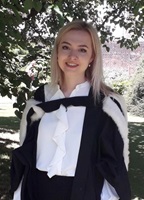 Ella Nixon
Ella Nixon
Histories, Collections and Practice: Gender
and the Regional Art Gallery
I completed a History BA Hons at the
University of Cambridge followed by a History of Art MA at The Courtauld
Institute of Art, specialising in twentieth-century European art. My PhD (funded
by Northern Bridge) explores gender representation in the collecting,
curatorial and educational practices of regional art galleries from the early
twentieth century to the present day. My project is in collaboration with the
Laing Art Gallery, Newcastle, which my thesis uses as a central case study.
Email: ella.nixon@northumbria.ac.uk
 Lisa Peatfield
Lisa Peatfield
Capturing Belsen: photographs of the liberation of Bergen-Belsen concentration camp in English archives and museums.
The photographs taken during the liberation of Bergen-Belsen concentration camp in April 1945 have become some of the most familiar images of the Holocaust. My research, funded by the Heritage Consortium, looks at how these photographs have been used, documented, interpreted and exhibited by the museums and archives that now hold them. I am a curator of social history at the Museum of Liverpool. I have an MA in Material and Visual Culture from UCL and a B.Social Science from the University of Birmingham.
Email: lisa.peatfield@northumbria.ac.uk
 Nick Pepper
Nick Pepper
Northumberland National Park: Governmentality and the Recent and Not-So-Recent History of Thirlwall Castle
Academic background -- 1990-93 Social Psychology BA(hons); 1994-95 Criminology MA; 2018-19 Creative and Cultural Industries Management MA (dissertation: How might Northumberland National Park Authority develop a folk festival on Hadrian’s Wall? A scoping document using WoodFest – a festival on a heritage site – as a case-study). Other activity -- Director of Allen Valleys Folk Festival; Chair of Allendale May Fair.
Email: nick.pepper@northumbria.ac.uk
Shaun Pitt
Piotr Kropotkin, anarcho-communist networks and British “New Liberalism” 1886-1921
I am interested in British anarchist networks in the early twentieth and late nineteenth century particularly their connections to other external networks. More broadly I am also interested in heterogenous political networks in this time period such as those centring around land reform, feminist, pacifist, Irish nationalist, prison reform and scientific networks (particularly in the social sciences). I studied my BA and MA at Oxford Brookes University. I am also very interested in the historic role of female relational activists and administrative political work more generally hope to publish an article on this subject in the near future.
Email: shaun.pitt@northumbria.ac.uk
Twitter: @ShaunJPitt
 Roseanna Ramsden
Roseanna Ramsden
Rereading Women’s Holocaust Testimonies Against the Grain: Gendered Narratives, Representation and Identity
My PhD thesis aims, at its core, to help us garner a better understanding of women’s retrospective memoirs of the Holocaust. It rejects the traditional approaches to survivor accounts taken by much Holocaust research, opting instead for a fresh manner of critical reading; one that uses queer, gender and feminist theory as hermeneutic tools with which to reread women’s memoirs ‘against the grain’ of androcentric, heterosexist and normative Holocaust discourses. My research interests include queer history and women’s history, gender and identity, Holocaust testimony and the future of Holocaust remembrance, and women’s autobiographical writing. I have blogged for History Matters, and have published in the Holocaust Studies journal.
Email:
 Daniel Riddell
Daniel Riddell
The Role of Financial, Human and Social Capital and Trust in Business Partnership Formation and Network Operation: German and Scandinavian Merchants in Newcastle-upon-Tyne 1840-1920
I completed my BA and MRes at Northumbria. My PhD examines the expatriate merchant communities held to be vital to the development of the first world economy (Early Modern period) in the transition period (19th century) to the new world economy, where they are often overlooked, or held to have lost importance. This is done through the medium of my trust-capital framework. That is that the relationship between trust and financial, human and social capital was the key driver shaping the career and operations of individual merchants, rather than trust alone.
Principal supervisor: Dr James McConnel
Email: daniel.riddell@northumbria.ac.uk
Twitter/X:
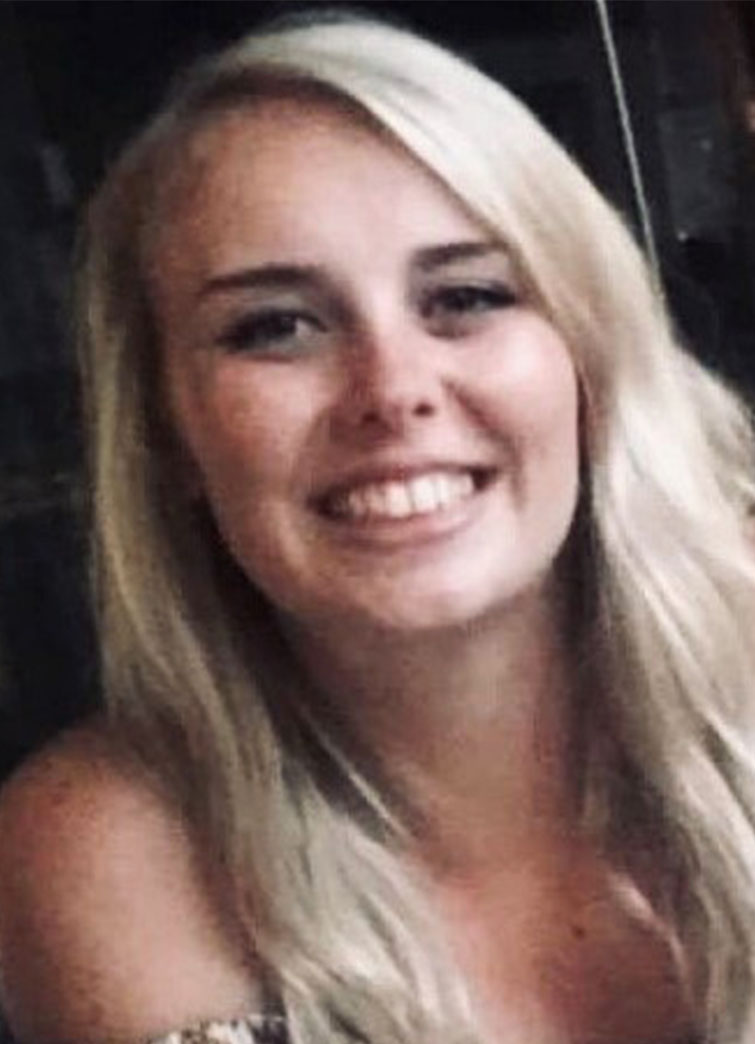 Emily Sharp
Emily Sharp
The National Union of Students and its Internationalisms: British Students and Transnational Solidarity from the 1950s to the 2000s
I completed both my MA (Hons) and MLitt in History at the University of Glasgow where I was awarded the Charlotte Nicholson Postgraduate Bursary and the George Gilbert Memorial Prize. My PhD is funded by the AHRC and seeks to assess the contribution of British student activists to international solidarity campaigns across the second half of the twentieth century. Examining the anti-apartheid movement, and the Chile and Palestine solidarity campaigns, I hope to track the changing sentiments, principles, patterns and priorities in British student activism across this period and to demonstrate the interconnected nature of local, national and international activism.
Email: emily4.sharp@northumbria.ac.uk
Twitter: @mlyshrp
LinkedIn:
 Mark Stoddart
Mark Stoddart
The Political and Social Construction of Work in North Eastern Engineering
Industries 1880 -1918
I have 40
years of experience in IT, People and Process Management, the last 30 years of
which were spent working for Xerox in a variety of UK and European
management roles. My academic background starts with a BA (Hons) in
Politics at Newcastle University, carries on with a BSc in History, an MBA and
an MA in History all through the Open University. My research interests focus
on the experience of work and the processes and materials that supported it,
for both manual and white collar workers. I run a small consulting
practice when I'm not researching, and am a Trustee for two Newcastle based
charities. I have been a member of Durham County Cricket Club for over 30
years.
Email:
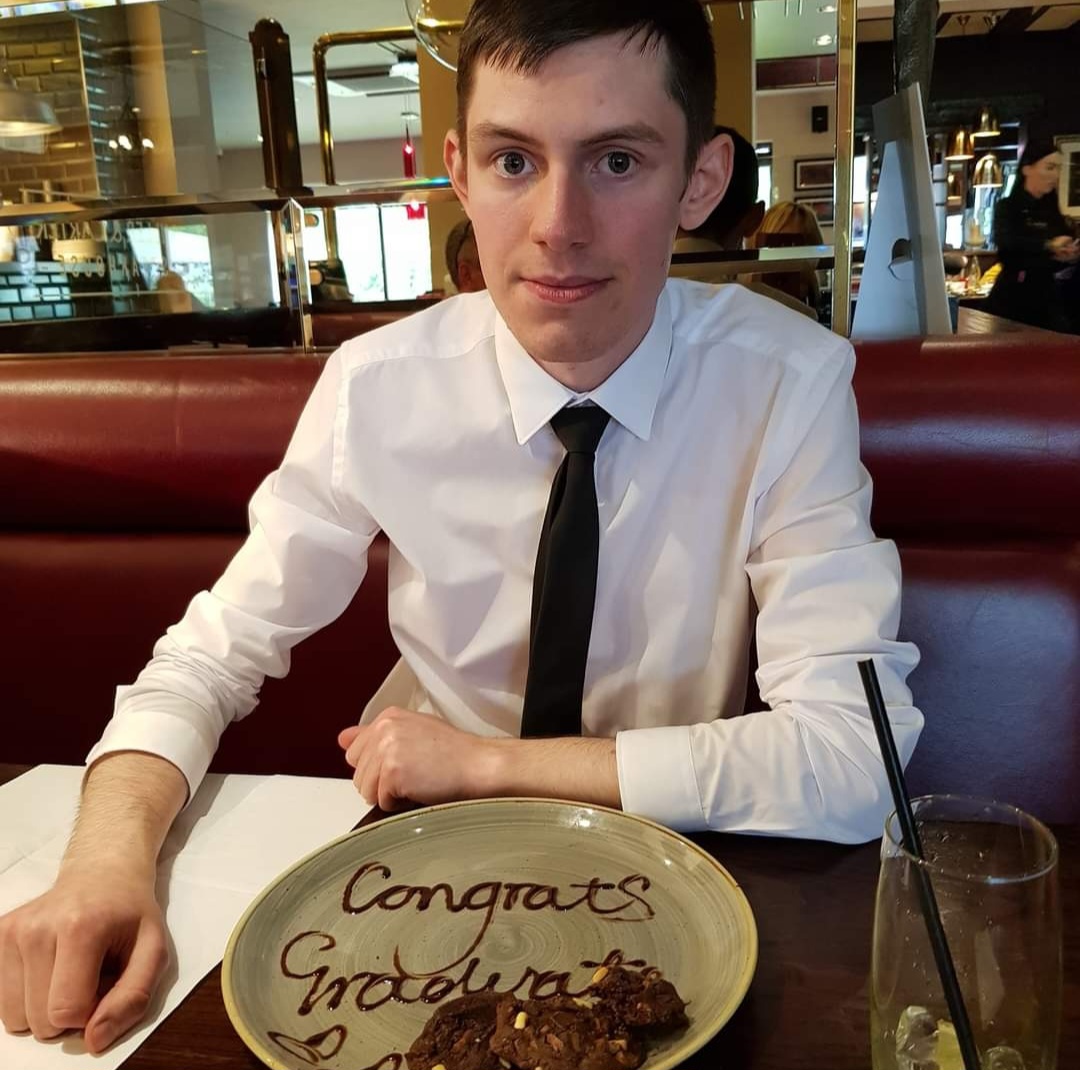 Ryan Thompson
Ryan Thompson
The People’s Republic: The Realignment of Vermont and the Battle for a Progressive America, 1968 – 2006
I'm a historian of left-wing politics in the twentieth-century United States. My Northern Bridge funded PhD studies intra-governmental politics in Vermont. I examine how 'back-to-the-land' movements intersected with municipal and state-level electoral campaigns to bring about a liberal-progressive realignment of Vermont. A realignment that exacerbated growing divides between grassroots left-wing activists and institutional Democrats. I completed both my BA (Hons) in English and History and my MA in History at the University of Lincoln. My MA thesis, 'Mr. Sanders Goes to Washington: Bernie Sanders, Vermont, and the Struggle for Congressional Progressivism in Neoliberal America (1990 – 2001),' won an award from the Lincoln Record Society.
Principal supervisor: Dr Patrick Andelic
Email: ryan.thompson@northumbria.ac.uk
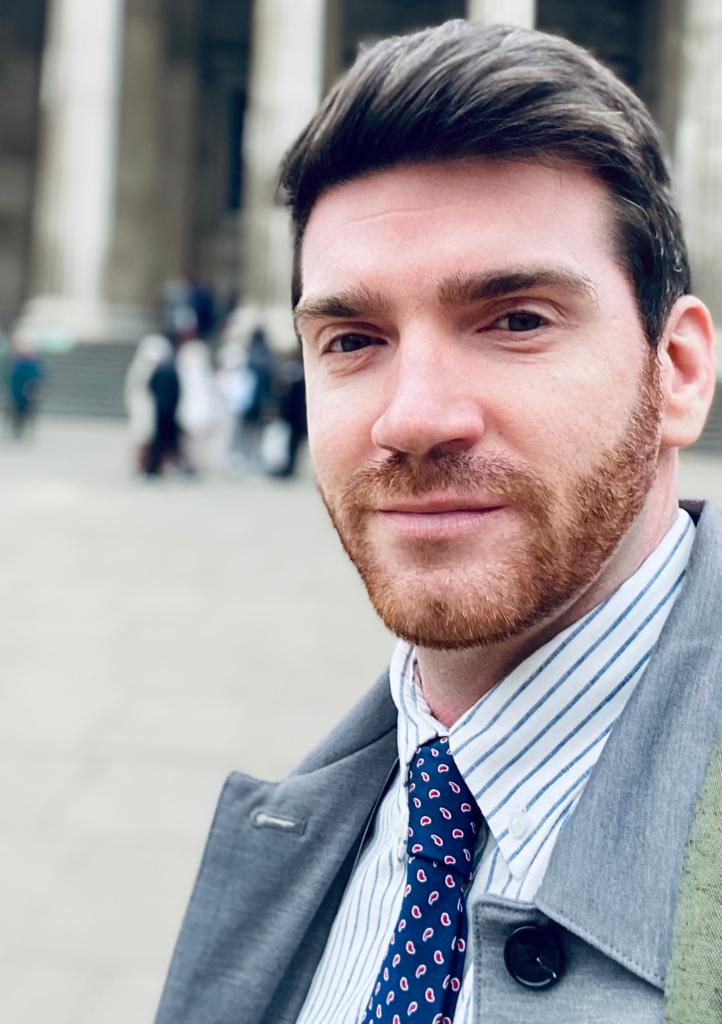 Luke Robert Usher
Luke Robert Usher
“We Were There”: The Recalled Experience of British Veterans of the Burma Campaign, 1942-45
My PhD thesis examines the recalled experiences of British veterans who fought in the Burma campaign of the Second World War. The project takes a thematic approach to the analysis of memoirs and previously recorded interviews held in the Imperial War Museum’s Sound Archive and at the National Army Museum. It aims to bring together the disciplines of new military history, oral history, memory studies and the cultural history of war. Funded by The James and Deirdre Dyson Trust through a Burma Star Memorial Fund Scholarship.
Academic background: MA (History and Education), Postgraduate Certificate of Education (PGCE), BA (History).
Principal Supervisor: Dr Linsey Robb
Email: l.r.usher@northumbria.ac.uk
Twitter/X: @LRUWW2
LinkedIn:
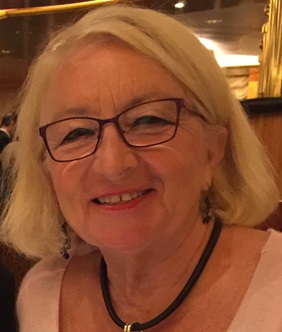 June Watson
June Watson
Female Agency, Influence and Sociability in the Informal Networks of Early Modern Science 1760-1820
June completed her BA in History at Sunderland University in 2019 and received the Sunderland Antiquarian Society Prize for her dissertation on botanist Lady Emma Tankerville (1752-1836). She moved to 51▒¼┴Ž and received a Distinction in her History MRes in 2021 for her research into the scientific illustrations of two eighteenth-century female botanists who travelled to the periphery of empire. This dissertation was awarded second prize in the 2021 Women’s History Network M.A. Competition. Now in her third year of a Northern Bridge supported PhD project she is investigating the masculine science networks of empire to recover the botanical contributions of other women between 1760-1820. In the future she hopes to publish a definitive book on the women who were elbowed out of botany when male professionalism gained momentum in the 1830s.
Principal supervisor: Dr Felicia Gottmann
Email: june.watson@northumbria.ac.uk
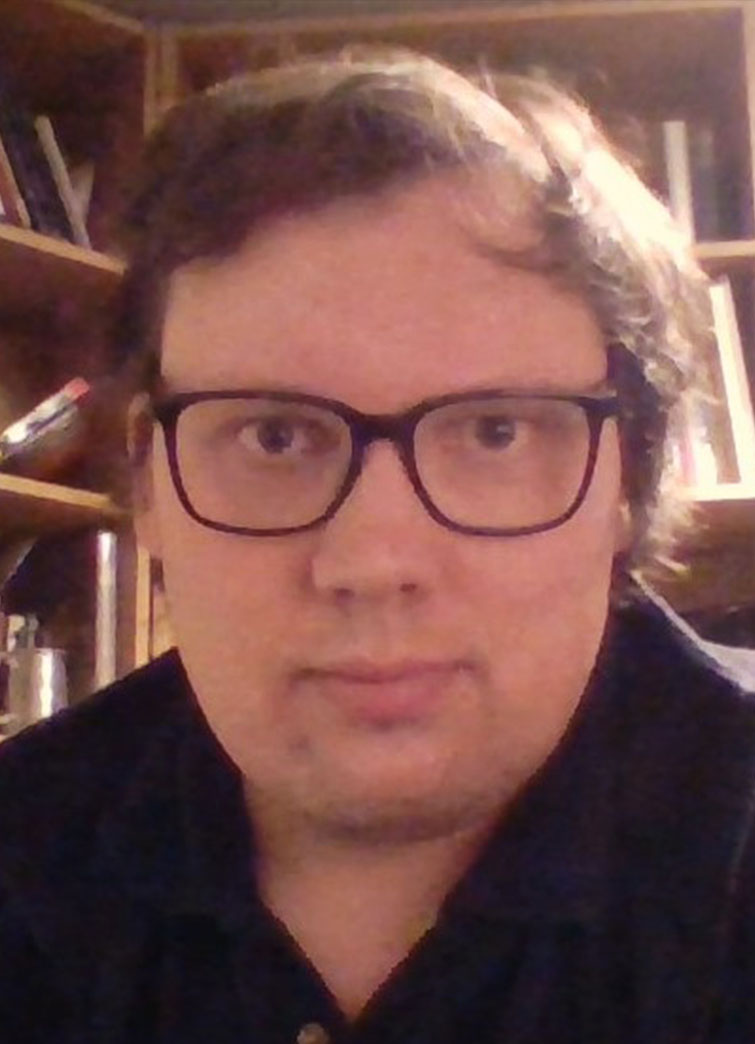 Owen Woods
Owen Woods
Shifting patterns of tonal design in the organs of Harrison & Harrison between 1872 and 1972
I am researching the changing tonal design of Harrison & Harrison Ltd during their first century based in Durham. I am investigating the organ as an artform and how it relates to community, to musical and technological fashion, and to individuals. My route into research was unconventional, graduating with a Masters in Engineering from the University of Cambridge in 2012 and subsequently working as an organ builder for Harrison & Harrison from 2015. My research is grounded in practical knowledge of the art of organ building and four years of immersion in the extensive company archives.
Email: owen.woods@northumbria.ac.uk
Recently Completed PhD Theses
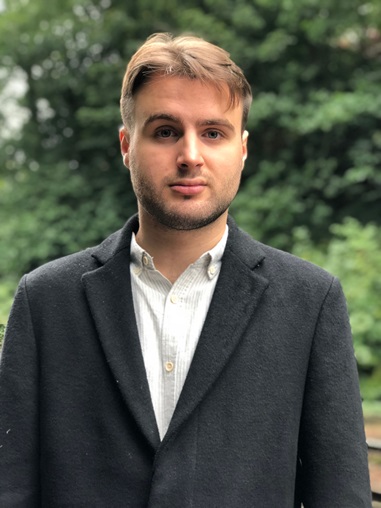 James P. Brown
James P. Brown
Soviet and Anglo-American responses to Cold War Dissent, 1965-1991: Propaganda, Discourse, and Ideology
My thesis examines the role played by dissent in the Cold War's ideological geopolitics, propaganda, and intellectual history. It additionally explores the significance of dissidents to political identity in the national politics of the rival Cold War powers. This builds upon my core interests of the Cold War, International Relations, and the history of ideas. I have a 1:1 in History from Northumbria and Masters in East European and Eurasian Studies from the University of Glasgow. #neurodiverse
 Simon H. Buck
Simon H. Buck
Old age and ageing in musical culture of the US South
I am currently researching experiences and representations of old age and ageing in country, blues, jazz, gospel, and other roots musics related to the US South from the early 20th century to the 1960s. My research interests include histories of popular culture, the South, ageing, intergenerational interaction, and medical humanities, including disability studies, in the American context. My thesis is inspired by previous and current occupations as an oral history project work for archives and community groups, as a carer for disabled clients, and as a financially unsuccessful, yet irrepressibly passionate, blues pianist
 Jasmine Calver
Jasmine Calver
Anti-Fascist, Feminist and Communist Activism in the 1930s: A study of the Comité mondial des femmes contre la guerre et le fascism
I completed a BA (hons) in History and an MRes in History both from the University of Northumbria, and was given a studentship to further my research at Northumbria at PhD level. My research interests include women’s history, French history, the relationship the Soviet Union and the West and anti-fascist history in the interwar period. My current project examines the work of a communist led, women’s anti-fascist group, the Comité mondial des femmes contre la guerre et le fascisme, and its links to the Soviet Union.
 Ann-Marie Foster
Ann-Marie Foster
The Ephemera of Remembrance in the Wake of War and Disaster, c.1899-1939
Ann-Marie holds BA(Hons) and MA degrees in history from Durham University and a PGCert in Heritage Research from the University of Hull. She is currently an AHRC Heritage Consortium funded PhD student at 51▒¼┴Ž under the supervision of Dr James McConnel (51▒¼┴Ž) and Dr Jenny MacLeod (University of Hull). Her interests lie in the intersection of war, disaster, and family memory. Her research is currently focused on the ways in which families and individuals grieved after war and disaster, mapping patterns of mourning which emerge in relation to sudden death during the early twentieth century. She held a PhD placement at the British Library cataloguing First World War ephemera in 2016 and was awarded a Gerda Henkel scholarship by the l’Historial de la Grande Guerre in 2017. She has blogged for various online publications (British Library, Remember Me, Oxford World War One Centenary) and has published in the British Library Journal. An article on memory transmission between veterans, their families, and local museums is forthcoming in History & Memory (2019).
 Lara Green
Lara Green
Russian Revolutionary Terrorism in Transnational Perspective: Representations and Networks, 1881-1926
I began my PhD at 51▒¼┴Ž in 2014, having previously studied for my BA and MA degrees in History at Durham University. My PhD focuses on the production and reception of representations of Russian revolutionary terrorism abroad, among English-speaking audiences and communities of émigré revolutionaries, explores representations of terrorism across a variety of genres, and looks at the transnational networks which supported terrorist propaganda abroad.
 Rowan Hartland
Rowan Hartland
Black Power Culture in the American South, 1967-1977
My PhD investigates Black Power Culture in the under-researched and often marginalised regions in the American South. The thesis challenges the notion that Black Power was dominated by Northern Black Nationalism and instead emphasises the heterogeneous strategies of organisations and movements that formed cultural networks in the South. My research Interests include the Black Power Movements; the Civil Rights Movement; African American Culture; Visual and Material Culture.
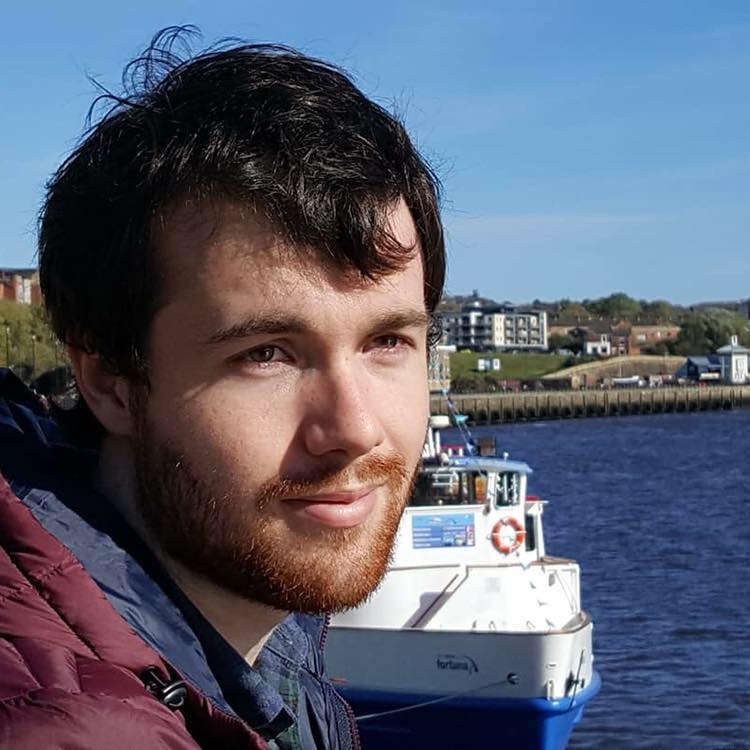 Jack Hodgson
Jack Hodgson
Californians and Others: Marginalised children and the Golden State during the Great Depression
I completed my BA and MA at Teesside University where I received the Dick Richardson Memorial Prize, before moving to Northumbria to work on my PhD project. In that, I examine the marginalisation of non-Anglo-Californian children and their relationships with state institutions. More broadly, I have researched the use of children’s drawings as historical sources and American children’s interactions with Communism in the 1920s. Those wider interests, and my prior experience as a Camp Director in New Jersey, are reflected in recent contributions to Business Insider and The Washington Post. I am also co-founder of the Youth in America Research Network.
Twitter: @hodgepodge96
 Struan Kennedy
Struan Kennedy
(Re)Writing on the Wall: Disarming Weaponised Murals & Masculinities in Loyalist Northern Ireland
My thesis firstly investigates how loyalist masculinities are expressed throughout the symbolic landscape of Northern Ireland. I am focusing on the impact of militarised displays, the public glorification of violence and the continued presence of intimidating imagery. Secondly, the project seeks to understand ways of undoing this regressive practice which elevates a selective voice while silencing other narratives. This project is situated at the busy intersection between my three primary interests: culture, gender and conflict. This is derived from my background in History of Art at Glasgow University and Masters in Creative Practices of Research from Glasgow School of Art.
Sophie Roberts
Complicating Gender: Female Activists and the Multiple Dimensions of Anti-Vietnam War Protest in Britain
Having studied U.S. presidential history in the past, my current research focuses on the anti-Vietnam War movement in Britain and its transnational links. My PhD takes four female case studies who opposed the war in Britain in various ways. These women utilised different activist approaches, including transnational co-operation, local activism, activism channelled through Parliament, and trade union activism, in order to agitate for the same cause. Through this approach, my thesis seeks to explore notions concerning the intersection between gender and activism, by exploring the activism of these women who, unlike many of their female contemporaries, did not oppose the war using gendered rhetoric.
 Rowan G. E. Thompson
Rowan G. E. Thompson
The Peculiarities of British Militarism: The Air and Navy Leagues in Interwar Britain
Rowan’s thesis examines the role of the Air League of the British Empire and the Navy League in the re-militarisation of state and civil society in interwar Britain. His thesis engages with the militaristic associational culture of the period and explores how susceptible British popular and political culture was to militarism as expounded by these two organisations. His research interests include: British political and associational culture, militarism, political activism and the impact of war on British society and politics.
Twitter:
 Jack Weatherston
Jack Weatherston
How the West has Warmed:
Climate Change in the Contemporary Western
My research focuses on contemporary
Westerns with an eco-critical perspective. Due to its centrality and importance
within American mythmaking, the Western genre is a productive site for
interrogating the influence of climate change on culture. The troubling
anxieties and traumas present in contemporary Westerns are, I argue, indicative
of the encroaching anxieties of climate change. I have taught and lectured on
American literature and introduction to literature modules at Northumbria and
Newcastle Universities. I have a chapter in an edited collection of Western
scholarship forthcoming in 2019, publisher Bloomsbury. I have a BA and MA in
English from Exeter University.
 Drew James Ryder
Drew James Ryder
The Experience of British Soldiers in the Korean War 1950-1953
I am a History student, primarily interested in the cultural history of servicemen in the 20th Century. I completed a Bachelors degree in History with First Class Honours and Masters degree at Teesside University. My current research is focused around the lives and experiences of British servicemen in the Korean War of 1950- 1953.
 Damian Shiels
Damian Shiels
Recovering the Voices of the Union Irish: Identity, Motivation & Experience in Irish-American Civil War Correspondence, 1861-65
Formerly a curator with the National Museum of Ireland and company director with a commercial heritage firm, Damian has published and lectured widely on Irish archaeological and historical topics. Among his authored books are The Irish in the American Civil War (History Press, 2013) and The Forgotten Irish: Irish Emigrant Experiences in America (History Press, 2016). He established the award-winning www.irishamericancivilwar.com website in 2010. He specialises in social aspects of military history; his current research focuses on analysis of the correspondence of Irish servicemen contained within nineteenth-century American widow and dependent pension applications.
Twitter: @irishacw

 Malya Bhattacharya
Malya Bhattacharya Adam Curry
Adam Curry  Paul Davy
Paul Davy Adam Dixon
Adam Dixon Adam Drake
Adam Drake Harriet Galler
Harriet Galler Abby Hammond
Abby Hammond Benedict Heaney
Benedict Heaney Louis Lorenzo Holland Bonnett
Louis Lorenzo Holland Bonnett Ciaran Johnson
Ciaran Johnson Sebastian Bank Jørgensen
Sebastian Bank Jørgensen Helen Leighton-Rose
Helen Leighton-Rose Laura Littlefair
Laura Littlefair Christopher A. Miller
Christopher A. Miller Ella Nixon
Ella Nixon Lisa Peatfield
Lisa Peatfield Nick Pepper
Nick Pepper Roseanna Ramsden
Roseanna Ramsden Daniel Riddell
Daniel Riddell Emily Sharp
Emily Sharp Mark Stoddart
Mark Stoddart Ryan Thompson
Ryan Thompson  Luke Robert Usher
Luke Robert Usher June Watson
June Watson Owen Woods
Owen Woods James P. Brown
James P. Brown  Simon H. Buck
Simon H. Buck Jasmine Calver
Jasmine Calver Ann-Marie Foster
Ann-Marie Foster Lara Green
Lara Green Rowan Hartland
Rowan Hartland Jack Hodgson
Jack Hodgson Struan Kennedy
Struan Kennedy Rowan G. E. Thompson
Rowan G. E. Thompson Jack Weatherston
Jack Weatherston Drew James Ryder
Drew James Ryder Damian Shiels
Damian Shiels


